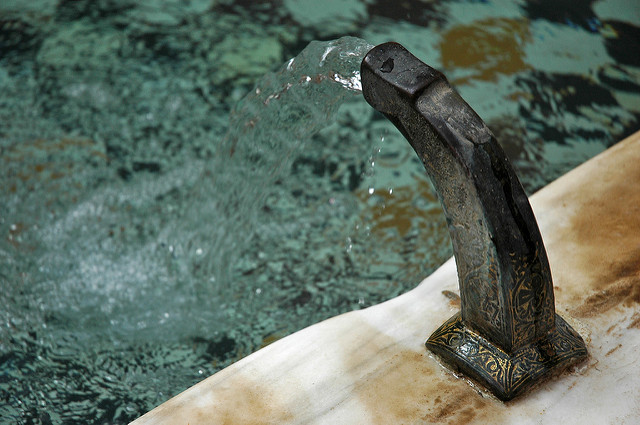
Water security in Morocco
From August 27 to 31, 2017, Stockholm, Sweden's capital city, will host World Water Week, the World Bank-organized annual conference on water and water management. A special session on Tuesday, August 29 will focus on water resources management in the Middle East and North Africa (MENA) region, where water shortage is becoming more and more acute. This session will also focus on the launch of the World Bank's new report entitled Beyond Scarcity: Water Security in the Middle East and North Africa.
Ms. Charafat Afilal, Morocco's State Secretary in charge of Water, who will participate in this session, shares with us her reflections on the water management challenges facing her country.
Owing to its geographical location, Morocco has considerable climate differences within its territory and variable rainfall depending on the region and season. With a view to supporting its development and streamlining water management, Morocco has, for decades, been committed to managing its water resources by constructing major water infrastructure (dams, efficient water irrigation systems, etc.) to meet its household, industrial, and agricultural consumption needs.
The following achievements contributed to this undeniable success:
The policy of controlling and mobilizing water resources through the construction of large dams that play a flow regulation role by storing rainwater for use during dry periods and for irrigation purposes.
- A long-term planning policy launched in the early 1980s that allows decision makers to anticipate shortages by providing public authorities with a picture of water resource availability over a 20-to 30-year period.
- Major strides at the regulatory and institutional level to enhance water management efficiency across the territory. This pertains to the adoption of crucial pieces of legislation such as Law 10-95 for integrated, participatory, and decentralized water resources management through the establishment of water basin agencies and the implementation of mechanisms for the protection of water resources.
- The development of technical and scientific research skills in the relevant agencies at both the central and local levels.
As a result of these policies and investments, Morocco now has 140 large dams with a capacity exceeding 17.6 billion m3 and several thousand boreholes and wells to capture groundwater. This has helped secure the drinking water supply for Moroccan communities and develop a large-scale modern irrigation system (covering close to 1.5 million hectares), with a view to meeting the growth ambitions of an increasingly competitive agricultural sector. These policies also include integrated risk management systems through better protection of communities and properties from flooding, as well as water use for hydropower generation.
[Photo by nicobilou | Flickr]







